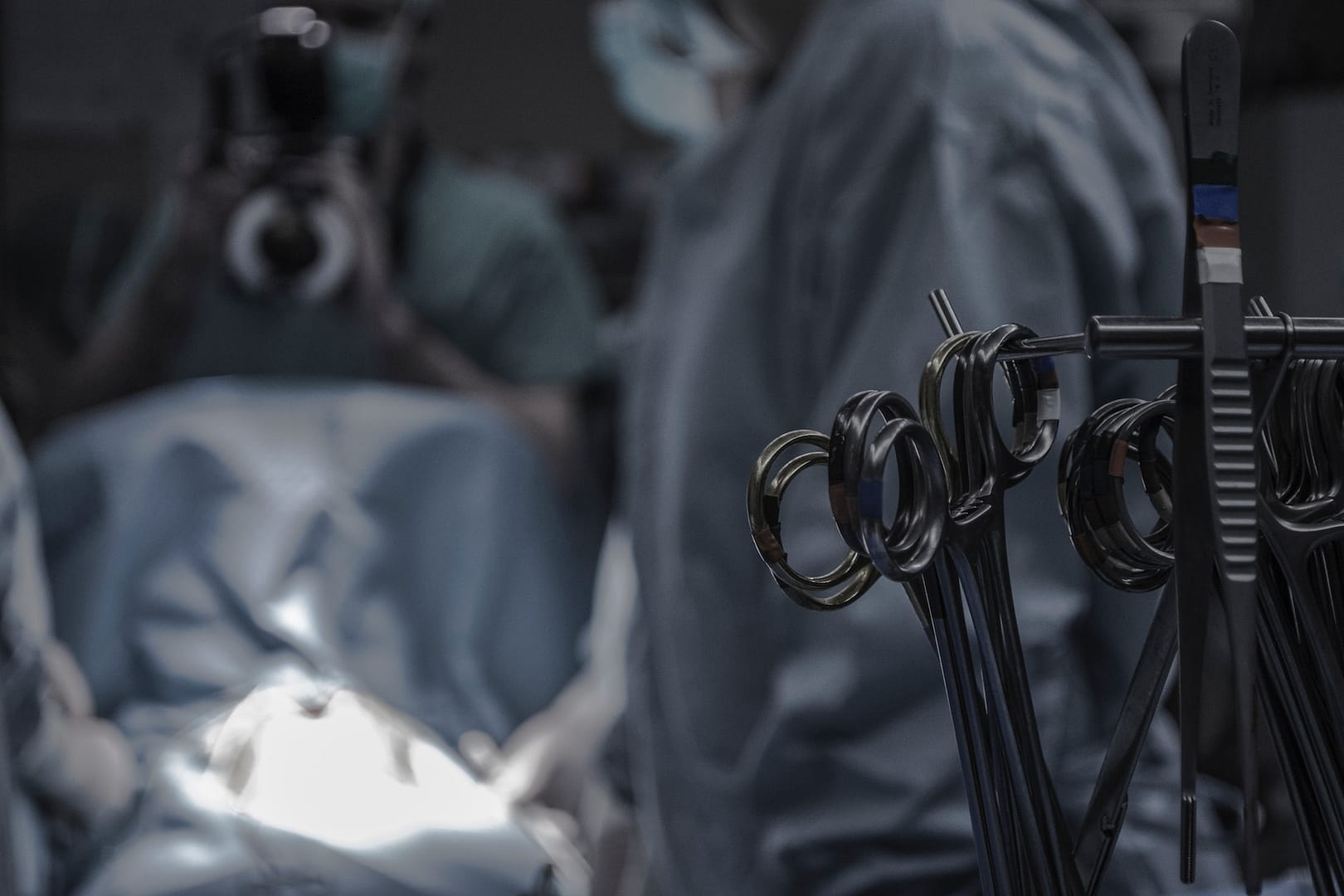In the high-stakes world of surgery, precision is paramount. Surgeons and their teams meticulously prepare for procedures, carefully considering every detail to ensure successful outcomes. Yet, despite their unwavering dedication and expertise, an unsettling and avoidable issue looms in the operating room: foreign object retention in surgery. This potentially catastrophic problem and common problem in clinical negligence, often a result of human error, can lead to severe complications and even death if not addressed promptly.
What are Retained Foreign Objects in Surgery?
Retained foreign objects, or surgical items, are materials inadvertently left behind in a patient’s body after surgery. These objects, which should never be part of the post-operative package, range from sponges and needles to instruments and other miscellaneous items used during the procedure. The term “retained foreign object” encompasses a variety of items, but it typically refers to gauze or surgical sponges, which are the most commonly retained items in surgery.
The Anatomy of the Issue
Foreign object retention can occur in any surgical setting, from minor outpatient procedures to complex, life-saving surgeries. The reasons behind this unsettling occurrence are multifaceted. The busy, fast-paced environment of the operating room, combined with the numerous tools and materials involved in a surgical procedure, creates the perfect breeding ground for this hidden peril. Surgeons, nurses, and surgical technicians must juggle multiple tasks and instruments, making it challenging to keep an accurate count of every item used.
The problem also arises from the human tendency to underestimate the number of items being used. This seemingly harmless error can have profound consequences. Often, surgical teams focus on the critical aspects of the procedure, inadvertently neglecting the meticulous accounting of items.
The consequences of retained foreign objects can be dire. They range from painful and persistent infections to severe internal damage, necessitating further surgeries to remove the object. In the most tragic cases, retained surgical items have led to death.
The Most Commonly Retained Surgical Item
While a wide array of objects can be unintentionally left behind in a patient’s body, surgical sponges and gauze are by far the most commonly retained items in surgery. These seemingly innocuous items, designed to absorb fluids and provide a clear surgical field, pose a significant risk when they go missing post-operation.
Surgical sponges and gauze, typically made from a blend of cotton and rayon, have a high absorbency capacity. They become saturated with blood and other bodily fluids during surgery, making them less visible as the procedure progresses. Their soft texture, designed for patient comfort, can also make them difficult to detect. This combination of factors makes it surprisingly easy for surgical sponges to be left behind inadvertently.
Infection and Pain
When a foreign object, such as a surgical sponge, is left inside a patient, it can lead to infection and severe discomfort. These retained items can serve as a breeding ground for bacteria, increasing the risk of postoperative infections. Infections can cause symptoms such as fever, pain, swelling, and redness around the incision site. Patients may also experience persistent pain and discomfort, often leading to prolonged recovery times.
Internal Damage
In more severe cases, retained foreign objects can cause internal damage. For example, a sponge left behind in a patient’s abdomen can lead to adhesions, obstructions, and even damage to organs. Such complications may necessitate additional surgeries to remove the object and repair the harm it has caused. These subsequent procedures carry their own set of risks and potential complications, creating a domino effect of medical issues.
Psychological Trauma
The impact of foreign object retention in surgery extends beyond the physical realm. Patients who discover that a surgical item was inadvertently left behind often experience significant psychological trauma. The realisation that an error occurred during their surgery can lead to anxiety, depression, and a profound loss of trust in the healthcare system. This emotional trauma can have long-lasting effects on a patient’s overall well-being.
The Role of Preventive Measures
Preventing retained foreign objects in surgery is a shared responsibility among all members of the surgical team. Multiple strategies are employed to mitigate the risk of this occurrence, with each healthcare facility implementing its own set of protocols.
Counting Procedures
Counting procedures represent one of the most fundamental measures to prevent retained surgical items. Prior to the surgery, a baseline count is established, and all items are meticulously tracked. The surgical team maintains a running tally of every instrument, sponge, and needle used throughout the procedure. This process allows for immediate identification of any missing items.
Surgical Technology
Advances in surgical technology have also played a significant role in reducing the risk of retained foreign objects. Radiofrequency and barcode systems can be employed to track surgical instruments and sponges, ensuring that each item is properly accounted for before and after the procedure.
Clear Communication
Effective communication within the surgical team is paramount. Surgeons, nurses, and surgical technicians must maintain open lines of communication to ensure that everyone is aware of the current status of the procedure, including the count of surgical items.
Post-Operative Protocols
In addition to preventing the issue in real-time, healthcare facilities have established post-operative protocols to address any potential complications related to retained foreign objects. These protocols ensure that if a patient does experience symptoms related to a retained object, prompt action is taken to identify and remove it.
A Learning Curve
Preventing retained foreign objects in surgery is an ongoing process that involves a steep learning curve. Healthcare providers are continually refining their protocols and procedures to minimise the risk. Education and training play a vital role in ensuring that every member of the surgical team is well-informed and aware of the potential risks.
The Legal and Ethical Implications
In addition to the medical and emotional consequences, there are significant legal and ethical implications surrounding retained foreign objects in surgery. Patients who suffer as a result of this issue may consider pursuing legal action against healthcare providers and facilities. The burden of proof in these cases often falls on the patient, making it a complex and challenging legal battle.
Healthcare Systems and Accountability
Healthcare systems and providers must grapple with the ethical responsibility of ensuring patient safety and well-being. The prevention of retained foreign objects is an integral part of providing quality care, and healthcare facilities must continually strive to maintain high standards and accountability.
Making a Clinical Negligence Claim with National Claims
At National Claims, we understand the complexities and emotional challenges involved in pursuing a clinical negligence claim, especially when it comes to issues like foreign object retention in surgery. We are committed to guiding you through the claims process and helping you seek the compensation and justice you deserve.
When you or a loved one has experienced the distressing consequences of retained foreign objects in surgery, it’s only natural to seek answers and accountability. Our team at National Claims is here to be your partner in this pursuit. We specialise in clinical negligence claims, and we have a deep understanding of the legal and ethical implications surrounding such cases.
Initial Consultation
Your journey with us begins with an initial consultation. We understand that every case is unique, and we take the time to listen to your story. Our experienced legal professionals will evaluate the details of your situation and provide you with an honest assessment of your case’s strengths and weaknesses.
Gathering Evidence
Once you decide to proceed with a clinical negligence claim, we’ll work closely with you to gather all the necessary evidence. Our team will help you document the medical records, communication between the healthcare providers, and any other relevant information. We will meticulously build a strong case on your behalf.
Legal Proceedings
National Claims will initiate the legal proceedings necessary to pursue your claim. We understand the intricacies of the legal system and will represent your interests throughout the process. Our goal is to ease the burden on you and your family during this difficult time.
Achieving Justice
Our primary objective at National Claims is to help you achieve justice. If retained foreign objects in surgery have caused you or a loved one undue harm, we are committed to holding the responsible parties accountable. While we cannot erase the past, we can work to ensure that you receive the support and compensation necessary to move forward with your life.

Conclusion
The issue of retained foreign objects in surgery is a harrowing reminder of the potential risks patients face within the healthcare system. Preventing such incidents and addressing their consequences is of paramount importance. As you’ve learned, retained surgical items can lead to infection, pain, internal damage, and psychological trauma for patients, making it a serious issue in the field of healthcare.
National Claims is here to support you through the challenging process of pursuing a clinical negligence claim. We believe in the importance of accountability and ensuring that those who have suffered due to medical errors receive the justice they deserve.
Remember, every case is unique, and we are dedicated to providing personalised support and guidance. Our legal experts will work diligently to gather evidence, initiate legal proceedings, and, if necessary, pursue litigation to achieve the best possible outcome for you.
While the consequences of retained foreign objects in surgery can be severe, there is hope in seeking justice and holding responsible parties accountable. National Claims is here to stand by your side as you navigate this challenging journey and work towards a brighter future.
Start your claim and speak to one of our claims specialists today by contacting us.
Click below to see why we are one of the most trusted claims management companies in the UK.

We’re proud of our excellent customer reviews
We thrive on delivering exceptional service and ensuring our clients’ satisfaction. Don’t just take our word for it. Check out some of our independent reviews to see what our clients have to say.
Excellent

This firm is excellent, they sorted out my car pay out and injury claim very fast, they always communicate with you all the time.

My accident case was dealt with confidence and with great result of the outcome, especially James kept me informed all the time.

I was very impressed at the way my inquiry was treated. I was listened to attentively and everything I needed to know was explained to me.






